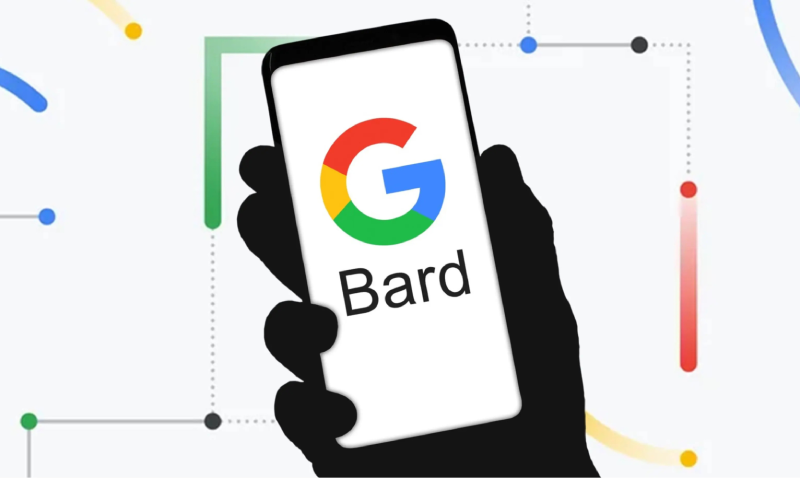Google Bard 2023 is released by Google on 21st March 2023. In this article, we will learn about Google Bard, its features and how it works. At present, Google Bard is accessible in US and UK only. And the company said it will expand the access over time to more countries and languages.
What is Google Bard?
Google Bard is an AI-powered Chatbot tool developed by Google and Alphabet, which uses natural language processing and machine learning to simulate human conversations. This tool is designed to supplement Google search and can be integrated into websites, messaging platforms, or applications to provide users with realistic, natural language responses to their queries.
Google Bard Release Date 2023
Google Bard was announced on February 6, 2023 and launched on 21st March 2023. It had a wide range of features, including natural language processing, conversational search, contextual responses, and scalability. As an AI-powered chatbot, Bard’s AI will be capable of learning and improving over time, becoming even more helpful and intuitive as it interacts with users.
Google Bard Overview
| Google Bard AI | |
|---|---|
| Name | Google Bard AI |
| Developed by | Google and Alphabet |
| Technology used | LaMDA |
| Competitor | Chat GPT 4 (Open AI) |
| Article Category | Tech |
| Bard AI Official Website | bard.google.com |
Google Bard AI – How it Works?
Google Bard is built on Google’s Language Model for Dialogue Applications (LaMDA) technology, which is based on Transformer, Google’s neural network architecture released in 2017. While LaMDA is not new, Bard is designed specifically around search and allows for more natural language queries, rather than relying on keywords.
Bard’s AI is trained to generate natural-sounding conversational queries and responses, providing context to its responses and helping with follow-up questions. This is a new development in the search engine space, which typically just provides a list of answers without much context or the ability to handle follow-up questions.
The initial version of Bard uses a lighter-model version of LaMDA that requires less computing power, making it more scalable to handle more concurrent users. This is in contrast to OpenAI’s ChatGPT, which is tuned to generative AI and can produce everything from synopses to creative writing, but struggles with an overload when too many people query it at once.

Google Bard Features:
As Google Bard AI is not yet formally released, its exact features are not fully known. However, based on the limited preview available to select Google beta testers, some expected features of Google Bard AI are:
Natural Language Processing: Bard can simulate human conversations using natural language processing and machine learning, providing realistic and natural language responses to user questions.
Conversational Search: Bard is designed to enable more natural language queries for search, unlike traditional search engines that rely on keywords.
Contextual Responses: Bard’s AI provides context to its responses, making it more conversational and helpful than traditional search engines.
Follow-up Questions: Bard’s AI is trained to handle follow-up questions, making it more conversational and user-friendly.
Scalability: The initial version of Bard uses a lighter model of LaMDA that requires less computing power, making it more scalable to handle more concurrent users.
Integration: Bard can be seamlessly integrated into websites, messaging platforms, or applications to provide users with natural and realistic responses to their queries.
Artificial Intelligence: As an AI-powered Chabot, Bard’s AI can learn and improve over time, becoming even more helpful and intuitive as it interacts with users.
What is LaMDA?
Are you curious about the technical aspects of LaMDA? Well, LaMDA is actually a Transformer-based model that was created by the brilliant minds at Google back in 2017. It represents a significant breakthrough in machine learning technology. The key to its success lies in its ability to “read” trillions of words, enabling it to pick up on the intricacies of human language and recognize patterns that are critical for generating appropriate responses.
With this incredible feature, LaMDA is adept at anticipating plausible responses that align with the context of a conversation. Its advanced algorithms enable it to learn and adapt, making it a powerful tool for various applications.
At the end of the day, LaMDA’s innovative design provides us with a glimpse into the future of technology and its potential for enhancing communication and understanding between people.
How To Join Google Bard Waitlist?
- Go to bard.google.com.
- Click on the “Join waitlist” button.
- If you are not already signed in to your personal Google Account, sign in now.
- Click on “Yes, I’m in”.
- Bard will add you to the waitlist and send an email notification when you get access to the platform.
Google Bard FAQs
How does Google Bard differ from ChatGPT?
Google Bard and ChatGPT differ in terms of their data source. Bard draws information from the internet, allowing it to provide the latest information, while ChatGPT is limited to data available prior to 2021.
What features can be expected from Google Bard?
Google Bard can be a tool for creativity and curiosity. It can help users explain complex concepts to children, learn about various topics, and even provide drills for skill-building.
Which is better: ChatGPT or Google Bard?
Both ChatGPT and Google Bard utilize natural language models. However, Google Bard uses a more recent language model, LaMDA, while ChatGPT uses an older GPT-3 language model. The choice between the two would depend on the user’s specific needs.
Is Google Bard AI accessible to the public?
As of now, Google Bard is accessible in US and UK only. And the company said it will expand the access over time to more countries and languages.
How many languages Bard support?
At present, Bard is available only in US English. But Google is working to make it available in all major languages.